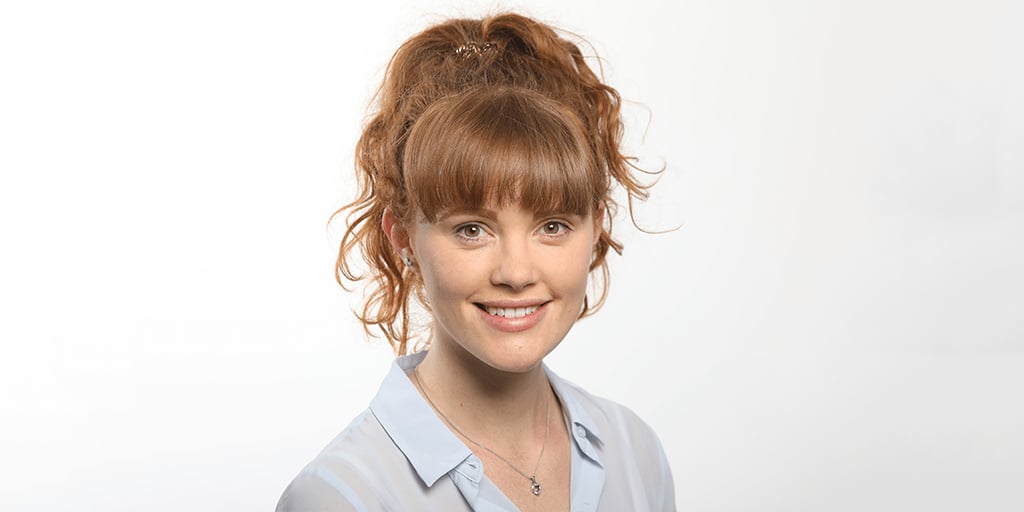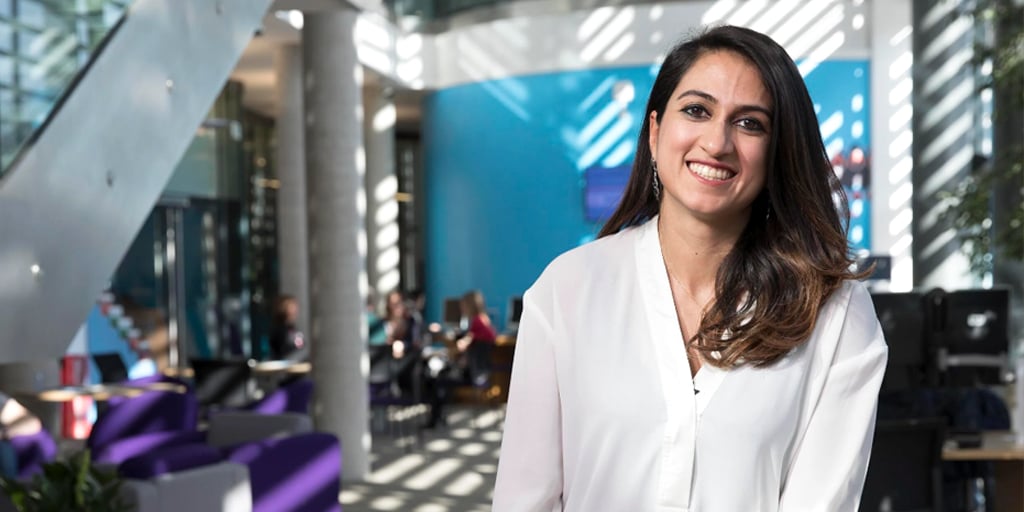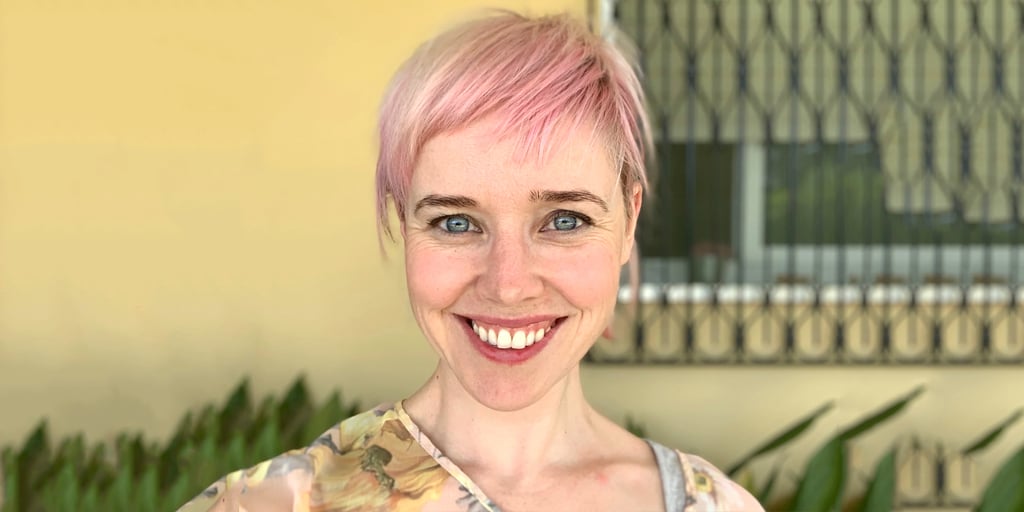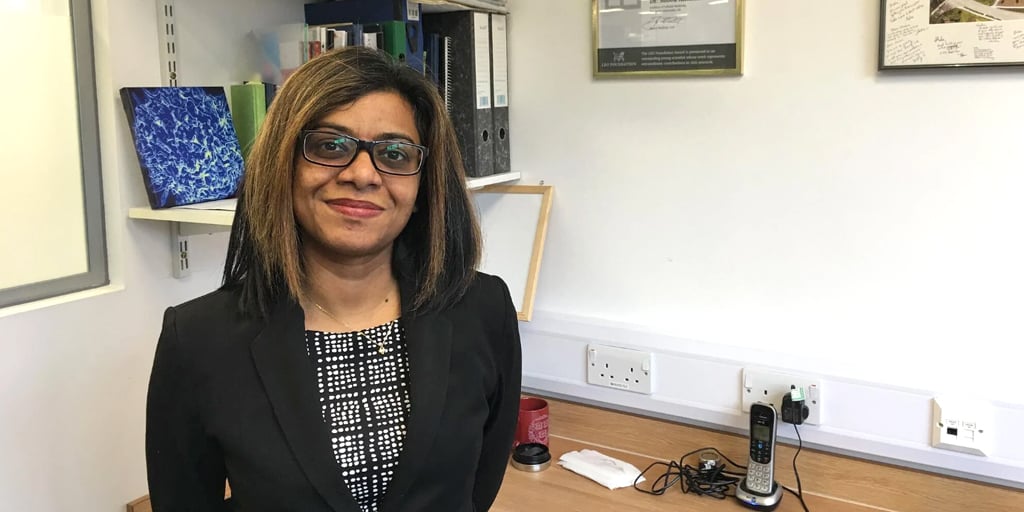International Women's Day
Published: 8 March 2021 | Updated: 10 March 2021 | By: Newcastle University | 18 min read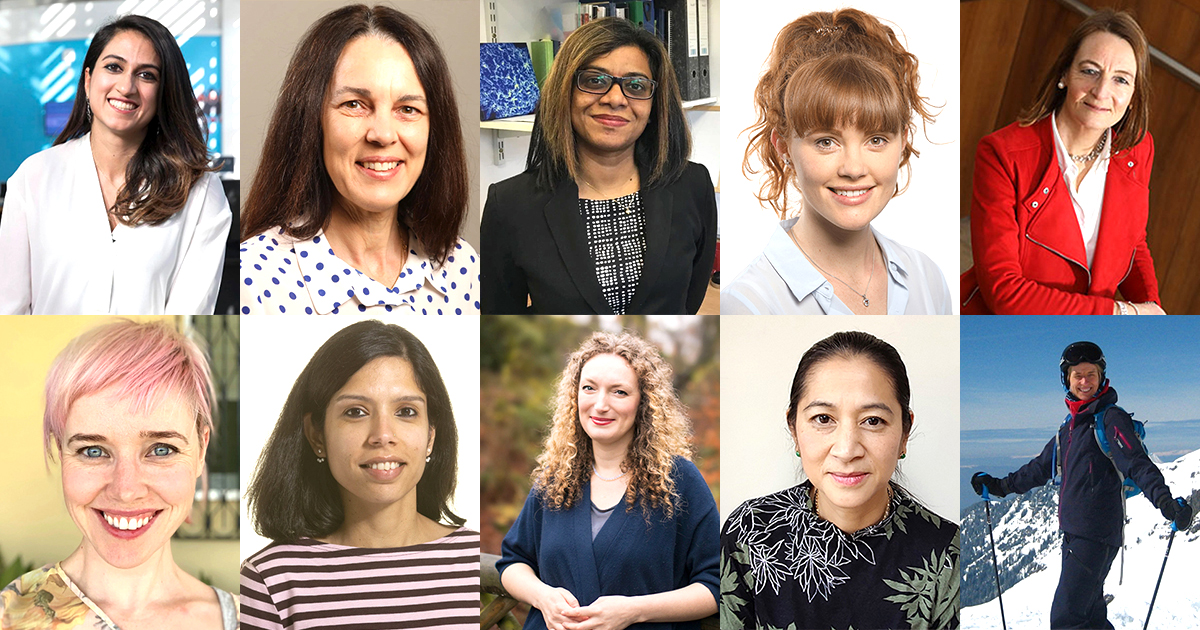
This International Women's Day, we're celebrating some of the truly inspirational women we have with us here at Newcastle University.
I’m following on from a succession of strong and brilliant women who set the bar high
Lucy Backhurst, Academic Registrar
What does it mean to be a woman in the area you work in?
As Academic Registrar, I have a responsibility for key student-facing services and working closely with our students to deliver an outstanding student experience. At Newcastle, I’m following on from a succession of strong and brilliant women who set the bar high and definitely inspired me. I’m enjoying the many challenges and the sheer breadth of things I have to deal with on a daily basis; you definitely have to be good at prioritising and juggling…
What privileges or challenges do you stereotypically face?
I’m privileged to work so closely with our students. They keep me on my toes and remind me why I do my job. I’m also lucky to work with so many talented and enthusiastic colleagues across the whole University.
Not long after I took up this role, the world was plunged into the global pandemic, so work has been an ongoing challenge to meet the daily demands and plan in the midst of constant change.
In terms of challenges, my dad is disabled and my mum is not in great health, so at the start of lockdown I moved back to my parents’ home to support them. Balancing a new and demanding job with caring responsibilities has not always been easy, but easier than home-schooling I’m sure! I also have a daily challenge of picking up whatever dead animal my parents’ enthusiastic cats bring in…
What role would you like to play in relation to women's rights in your area?
I get a lot of pleasure from helping colleagues to flourish. The pandemic has demonstrated just how many talented women we have in our University and I want to continue to do what I can to help them develop and succeed.
What advice would you give to young women going into your industry?
Be kind to people (and yourself). Be true to your values. Be confident in your talents and achievements – and invest in building your personal resilience. For me, the latter means being outdoors and in nature, whenever I can.
Which women inspire you?
Where do I start? I’m fortunate that my life is full of women who inspire me on a daily basis. At work, Suzanne Cholerton and Lesley Braiden have inspired me with their leadership, integrity and kindness. More broadly, I’d love to invite Jacinda Ardern and Michelle Obama round for dinner. I find them both inspiring leaders, driven by their values. Emily Maitlis is another. Listen to the Americast podcast (my favourite) and find out why. She loves her whippet too. Seriously though, I’m so lucky to have a wide network of friends who constantly inspire me with their talent and support.
How do you choose to challenge inequality?
Our previous Vice Chancellor Professor Chris Brink said that, “Diversity brings intelligence to a group” and I absolutely agree. For me, that means what I can do as a senior leader to make a difference to the experience of our diverse student (and colleague) community. For the teams that I lead, I want to ensure a culture of inclusiveness, diversity and creative contribution, and I know that I am pushing at an open door…
You should not have to change who you are and what you believe in order to succeed
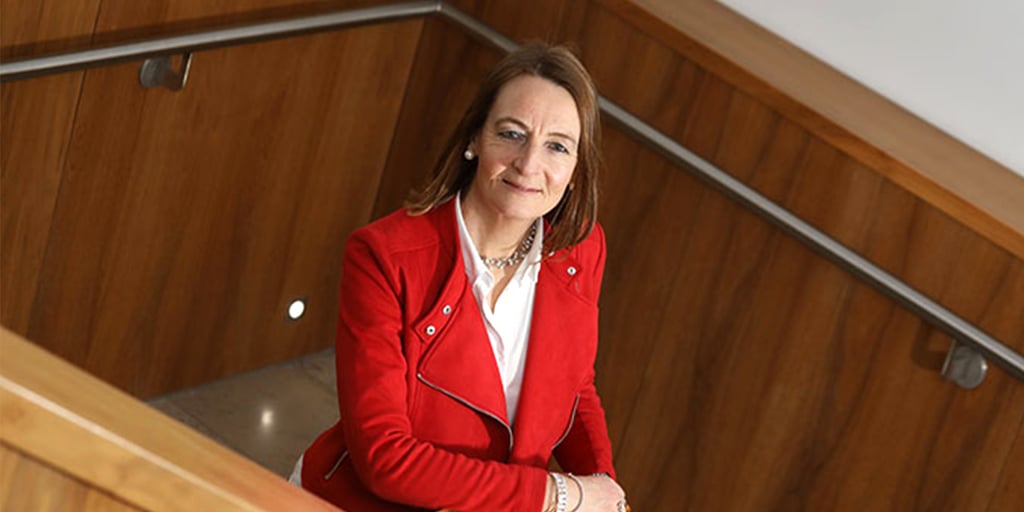
Alison Shaw, Professor of Practice for Success and Progression
What does it mean to be a woman in the area you work in?
As an experienced and senior professional woman, I have become aware of the more subtle as well as overt inequalities which manifest in the workplace, as well as in society at large. As a woman in the area I work in – educational leadership - I feel it is incumbent upon me to work for change and to strive for greater equity as a core part of my professional contribution.
I have spent the majority of my career to date in the state education sector. Women make up a much higher proportion of the education workforce than men, so ostensibly education is a field in which it ought to be easier for women to feel empowered. There is still, nonetheless, a higher proportion of male than female teachers who reach headship.
For me, the rewards of my previous work as a headteacher were never predominantly financial and I thought little about the gender differentials influencing my own pay. At a leadership level in a sector dominated by senior men - the Department for Education is dominated by men in senior roles and there remains a pay gap in terms of salary and bonuses; the same differences hold in the Inspectorate – my sense of disempowerment as a woman was more subtle. It was, however, very real, and at some times when I needed to exercise my professional values and experience in the interests of my students, stereotype threat could feel very real, traumatic and long lasting.
What privileges or challenges do you stereotypically face?
In all honesty, by being born in a democratic state in the global North to white, professionally qualified parents, I began life as a beneficiary of considerable ‘unearned’ privilege. People like me have a headstart, compounded over time by education, meaning that I remain cushioned by privileges which, deeply unjustly, are not yet in our country equally accessible to all.
As a woman, like most other women, I have endured numerous demeaning experiences in work and life, but on a scale of challenge, I believe that the indignities and knocks I have faced because I am a woman – whilst neither fair nor acceptable – are lessened by my daily experience of feeling secure and largely believed, supported and protected by the State.
What role would you like to play in relation to women's rights in your area?
I try to play a role in relation to women’s rights in my work by supporting the progress of younger colleagues; and in a voluntary capacity through governance, mentoring and participation in organisations which promote inclusivity, levelling up and individual empowerment. Women’s rights can only really be fully realised in a more equitable economic, social and political environment. In my view, fair access to inclusive education is the greatest force we can bring to bear to support a sustained change for women and other groups in society, excluded by inequality from the opportunities which ought to be open to everyone.
What advice would you give to young women going into your industry?
You should not have to change who you are and what you believe in order to succeed – fixing the problem of inequality should not mean changing yourself just to try and fit in.
- Learn about and recognise stereotype threat and what it can do to your self-belief and ability to succeed.
- As soon as you see an opportunity to provide support to someone else – woman or otherwise – do it; especially if you can see that they are being held back by an unjust disadvantage.
- Recognise your own privilege.
Which women inspire you?
Many women inspire me in one way or another – most women still carry a greater load of society’s work, balancing the project management skills of running a home and caring for others with their own work and earning. Young women inspire me – activists, creatives, entrepreneurs and carers - it's especially impressive in the face of the challenges of a pandemic-ravaged society. Unsung and unseen women inspire me – those who teach, clean, care, serve and volunteer. Men and non-binary people do these things, too – of course they do – but women are disproportionately highly represented in all of these roles.
How do you choose to challenge inequality?
I could definitely do more but I have chosen to use my professional capabilities as an educator and the opportunity I have in my voluntary roles to challenge inequality. This is the work I do.
I believe that everyone has the capacity to unlearn their biases and to learn new behaviours for a more equal society
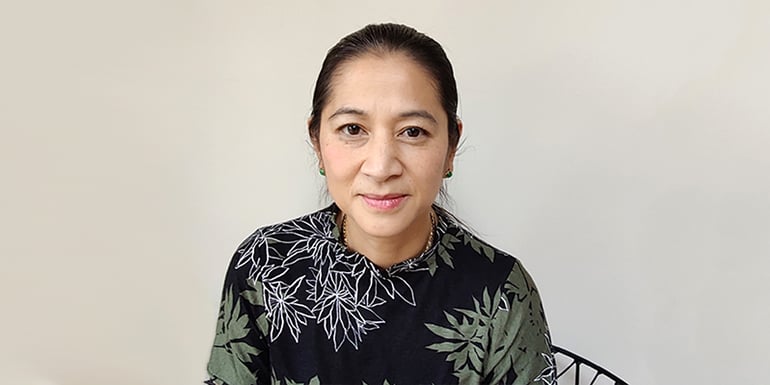
Dr Vi Parker, Equality, Diversity and Inclusion (EDI) Training Lead
What does it mean to be a woman in the area you work in?
I see my position as Newcastle University’s Equality, Diversity and Inclusion Training Lead as a great opportunity to challenge and help support true change for a more inclusive and diverse culture in the University.
I am a woman, a former refugee and a member of the Southeast Asian community (Vietnamese), I have experienced gender inequality, racial discrimination and social and economic disadvantages. These experiences put me in a unique position to appreciate the challenges and that there is still a lot of work to be done.
I fundamentally believe that everyone has the capacity to unlearn their biases and to learn new behaviours for a more equal society.
What role would you like to play in relation to women's rights in your area?
I would like to be a supporter of, and an advocate for, women because I really like and subscribe to the phrase, 'Lift as you Climb' by Viv Groskop. I believe in collegiality, in working and supporting each other to succeed and thrive. I believe in healthy competition, not rivalry.
I would also like to include more men in the conversation about women’s rights. I believe that the most impactful change for equality requires everyone being on board.
What advice would you give to young women going into your industry?
I would say to all young women: know yourself but be open minded, curious and generous, and that time flies by so be an active, doing person. I would also share the motto that I observe ‘Say what you mean and mean what you say’.
Which strong women inspire you?
I am inspired by the women I work with who are doing amazing things to change the system. I am inspired by the women who are breaking barriers, creating and working in the world around me such as Alexandria Ocasio-Cortez, Michele Obama, Amanda Ngoc Nguyen (civil rights activist and CEO and found of Rise), and Chimamanda Ngozi Adichie (author; please read her book Dear Ijeawele, or a Feminist Manifesto in Fifteen Suggestions).
Finally, the woman I am most inspired by is my mother, Bui Thi Thu Ha. She sacrificed everything so that I could have a life, a future. She worked hard to build strong foundations so that I could achieve my ambitions and dreams. Always lifting me up above herself.
How do you choose to challenge inequality?
I challenge inequality by:
- Promoting awareness through my experiences of inequality.
- Keeping up-to-date with research, news and networks.
- Creating and developing programmes that challenge bias and discriminatory behaviours.
- Teaching my children how to speak up and to be fair and inclusive when they go out into the world.
I am really inspired by women who encourage and empower other women to achieve
Sarah Beech, Employability and Widening Participation Projects Manager
What does it mean to be a woman in the area you work in?
I hope it means that I can be a good role model, particularly to students considering a career in Higher Education.
A large focus of my work is in supporting students from under-represented groups and I am eager to encourage this population of students to seize opportunities and develop their skills in order to improve their graduate outcomes.
Working in Higher Education, I am surrounded by lots of successful and inspirational females and I can honestly say that I have worked with, and been managed by, some amazing women from whom I have learned a great deal about how to be successful in the work place. I hope that in time I might be able to provide inspiration to other colleagues too!
What privileges or challenges do you stereotypically face?
I recognise that as a white female I have very likely benefitted from a number of privileges throughout my life and career in the UK. I am taking steps to educate myself on the experiences of others and the barriers and challenges that others face in this country when trying to secure employment or work their way up the career ladder.
I have been fortunate in my career to work in a number of countries and experience the different ways that women are treated by different cultures. These experiences have been a mixture of positive and negative and have encouraged me to reflect on how society in the UK treats people differently too. The opportunity to experience these different cultures has helped me to empathise with others and see situations from their point of view.
What role would you like to play in relation to women's rights in your area?
I am inspired by women who can juggle full time employment with the responsibilities of family life, especially those that did it pre-pandemic when working hours and school hours were so rigid. I do not believe that women should be penalised in their career journey just because nature dictates that women have children. I hope that as a result of the flexible working arrangements which we have all had to adapt to over the last year, there will continue to be a flexible approach to work in the future that will support more women in being able to progress in their career while managing the demands of family life too.
What advice would you give to young women going into your industry?
Listen and learn! In my first role in higher education I was surrounded by some very successful females and getting to know them and learn from them has definitely helped me to progress. I valued their opinions when it came to my work as I knew they were speaking from experience and learning from experience in the workplace is invaluable!
Which women inspire you?
I am inspired by women who, regardless of challenges, have a goal and endeavour to achieve it, whether that takes them 5, 10 or 20 years it doesn’t matter. I am also really inspired by women who encourage and empower other women to achieve too - we need each other’s support! I can’t give any specific examples as there are too many to mention, but in terms of making me who I am today I should definitely mention my Mum as without her I wouldn’t have the approach that I have so endless thanks to her!
How do you choose to challenge inequality?
It really frustrates me when I come across barriers in my work to support students from under-represented groups and when I do I am always determined to get to the root of the issue and find a way to remove it!
I don’t shy away from having an opinion, and when I notice something that I disagree with or I feel uncomfortable with I am unable to just sit at the sidelines or pretend I haven’t seen it! I have to try and fix it or make others aware of it, otherwise I feel complicit in letting something I feel is wrong continue to happen- and I couldn’t live that way.
I would love to support more diverse women in Higher Education to progress in their careers and achieve their ambitions
Naomi Oosman-Watts, Head of Student Services Strategic Projects
What does it mean to be a woman in the area you work in?
It means being surrounded by lots of other wonderful women who inspire me every day – I have been lucky that I work in a sector and an institution which is actively striving to be more equitable and diverse, but I still don’t see a lot of ethnic diversity in Higher Education management as a whole so I think we still have a way to go before we can say we are truly inclusive in the sector.
What privileges or challenges do you stereotypically face?
I’m very fortunate that I work, across the board – whether at an institutional or national level - with colleagues who are supportive, encouraging and have given me the confidence to take on new challenges and push myself. I think, like a lot of people, I face many internal challenges around 'Impostor Syndrome' and my own assumptions around how I might be perceived.
As I mentioned, there is a significant lack of diversity at a leadership level in particular in University professional services, so it can be challenging to work in an environment where you don’t feel you fit or belong. There is a lot happening, both in the sector and in our own institution to address race equality and diversity issues which is great to see, and I always aim to be an active part of this work as I believe it’s crucial to be part of the change you want to see.
What role would you like to play in relation to women's rights in your area?
I would love to support more diverse women in the University and in Higher Education to progress in their careers and achieve their ambitions.
What advice would you give to young women going into your industry?
- Trust your instincts and be yourself – when you have hard decisions to make, think about your values and don’t stray far from those.
- Have opinions, don’t be afraid of expressing them, and at the same time always take the opportunity to learn from colleagues around you – even if you learn how you don’t want to do things!
Which strong women inspire you?
I am very lucky to be surrounded by some amazing and inspiring women who have mentored, counselled and supported me through what has been a challenging year for us all – so rather than name any famous women, I draw inspiration from all the women who have supported each other through the pandemic.
I am one of several archaeologists working to end discrimination and bullying in the field
Dr Chloe Duckworth, Degree Programme Director for Archaeology
What does it mean to be a woman in the area you work in?
Archaeology has a long history of pioneering women, but it is only recently that their contributions have been recognised more widely. Today, many of us are working to end discrimination and bullying in the field, and to write the under-represented back into our teaching about the history of the discipline.
What privileges or challenges do you stereotypically face?
Women working in the field face challenges around accessing appropriate personal protective equipment and toilet facilities. In academia, women are disproportionately represented in the employed workforce. As a permanently-employed lecturer, these days I am privileged and relatively untouched by these problems, but they should remain everybody's fight.
What role would you like to play in relation to women's rights in your area?
I believe in the importance of intersectionality in women's rights, and in working to tackle racism, homophobia, ableism, transphobia, classism and other forms of discrimination. The School of History, Classics and Archaeology has recently begun an initiative to decolonise the curriculum, and I hope that my contribution to this - starting with our stage 1 ''Introduction to Archaeology'' module - will change the way students think about the past and help them to be more critical when exploring how it is studied, and reported in the media.
What advice would you give to young women going into your industry?
We spend a lot of time advising young women on how to deal with the specific challenges they face, so I would like to speak to everybody else. Please ask how you can support those around you who face additional challenges, be aware of the possibility of discrimination in language, behaviours, and choices that you make.
Which women inspire you?
I am inspired by Sada Mire, a pioneer in Somali archaeology; by the women behind 'Trowel Blazers', which celebrates women in archaeology, geology, and palaeontology; and by the women in my own school and academic unit, including (but not limited to!) Jane Webster, Sophie Moore, and Lisa-Marie Shillito.
How do you choose to challenge inequality?
My profile is increasingly public, via both national TV and social media. I challenge inequality by speaking out against it publicly, and by working within my profession to improve diversity and representation, through membership of the EDI committee within the School of History, Classics and Archaeology. I'm also a committee member of the EDI Group for CIfA (Chartered Institute for Archaeologists), as well as supporting the 'Respect' campaign created by British Archaeological Jobs and Resources (BAJR).
I conduct fundamental research on understanding the immune system's potential in treating autoimmunity and cancer
Dr Shoba Amarnath, Newcastle University Research Fellow
What does it mean to be a woman in the area you work in?
During my research career, I have had the privilege of working with a number of brilliant scientists both in the US and the UK. Thankfully, the fact that I am a woman has never affected my progression with my direct managers. I have always felt like a scientist and my gender has never played a role in my micro environment. It is appropriate, however, to highlight some of the best mentors to work with as a woman scientist within the Faculty of Medical Science (FMS). I have directly reported to the following individuals in the past 5 years and as a woman who works in immunology. I feel these individuals are really good at unbiased mentoring. For those who would like to succeed as a principal investigator and are curious about my managers for the past 5 years, they include Prof. John Isaacs, Prof. Derek Mann, Prof. Jonathan Higgins, Prof. Nick Reynolds, Prof. Penny Lovat and Prof. Mark Birch-Machin within FMS. It is important to surround oneself with supportive leaders in the field and I have had the opportunity to do so.
By contrast, my experience as the subject of peer-review of grants or journal submissions has not been so positive, with the odd reviewer that has questioned my independence or ability as an independent scientist. I usually give myself 24 hours to come to terms with it and then move on.
What privileges or challenges do you stereotypically face?
As a women scientist, I do not usually experience special privileges but do experience a number of stereotypical challenges. I am usually mistaken as a student at conferences. The other challenge I face are the number of assumptions that people make with respect to my personal life. As a woman of Indian origin, people assume that I am married with children. Usually, these questions come from fellow women scientists who then decide to give me a lecture on having a family without really knowing my personal circumstances. The idea that success equates to a “husband” and “children” with Asian women is a stereotype that is unproductive.
What role would you like to play in relation to women's rights in your area?
I hope I am already trying to do my part in not just promoting women’s rights but also in being fair to all talented scientists who work in my laboratory. Currently, my lab has only had women scientists as a result of using “meritocracy” as the only criteria in the hiring process and I expect this gender disparity to change with time. I hope to continue to promote the best talent without prejudice and do my best to ensure that the people who work in my laboratory succeed in their life goals, be it on academic or non-academic careers.
What advice would you give to young women going into your industry?
My advice would be to not seek out women managers, but seek out the best managers who will treat you like a scientist. As I mentioned earlier, my success has been the result of surrounding myself with scientists who value talent and intelligence over stereotyping and this would be my advice to anyone reading this blog-post.
Which women inspire you?
Rosa Parks (Rosa Louise McCauley Parks) - The first lady of civil rights.
Ada Lovelace - Published the first algorithm- one the first computer programmers.
Audrey Smith - Mother of Cryobiology.
How do you choose to challenge inequality?
People can face inequalities in many different ways, always make sure to speak your mind, stand by your decisions and document your actions. I choose to challenge inequality by supporting cultural diversity and believe that diversity within teams is important for innovation and progress.
A number of doctoral students within Open Lab have taken a feminist lens to work on designing supportive and inclusive technologies
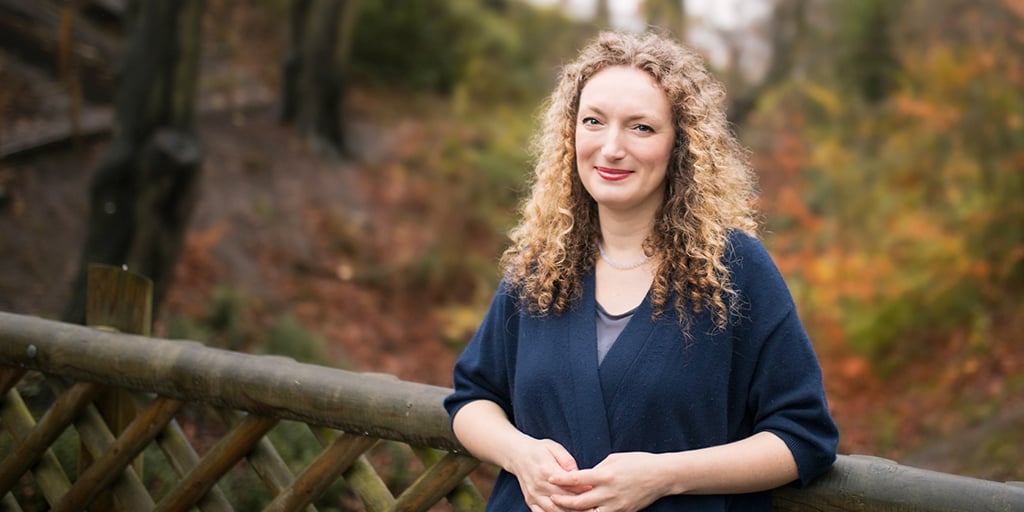
Professor Abi Durrant, Professor of Interaction Design
What does it mean to be a woman in the area you work in?
I am Professor of Interaction Design and Co-Director of Open Lab, working in the interdisciplinary field of Human-Computer Interaction. By engaging different disciplines, the field supports diverse perspectives and alternative ways of thinking about digital technology design. This culture can be seen through the work of students and staff at Open Lab who have taken a feminist lens to researching supportive and inclusive technologies with marginalised communities, for example, women living in refugee camps in the Lebanon (Dr. Reem Talhouk), sex workers (Dr. Angelika Strohmayer), and children and adults living with HIV in the UK (Dr. Caroline Claisse).
Working within a School of Computing, I have been sensitised to my colleagues’ concerns about women’s career progression; some feel that it may be lack of confidence and self-belief that (still) hold women back, along with unconscious bias. Concerns are often part of broader discussions about gender balance within STEM (Science Technology Engineering and Maths) subjects. For example, I am the first female professor in our School. We need to keep working together to develop strong evidence for understanding the nuts and bolts of how progression has happened or not.
What privileges or challenges do you stereotypically face?
I have taken two periods of Maternity Leave, and to be very honest, the need to balance caring responsibilities with personal motivation to progress my career has been complex to navigate. Each time, there were few colleagues working around me who could empathise through shared experience, and this felt quite isolating at times – closing down a sense that there may be opportunities for conversation. This is why I think the setting up of NU Parents and Carers is brilliant to address this. I experienced emotions related strongly to the physiological process and impact of having children – something not often focused on in discussions about equality and inclusion with respect to becoming a parent – perhaps due in part to the lively social commentary around gender and identity.
However, Imposter Syndrome is still real. I lost self-confidence and often felt guilt: about placing children in childcare whilst I worked; and about my part-time working pattern related to work availability and performance. To navigate this: I visualised career progression as steady, focused, but requiring patience and time. My practical insight is that it is critical for new parents to understand options for flexible working patterns, and conversations between colleagues are really important to hold, to help build and sustain self-confidence at work.
What role would you like to play in relation to women's rights in your area?
I would like to offer mentoring and support to junior academics in this field as the more positive role models of successfully working in and developing inclusive research spaces there are, the more successful we will all be.
What advice would you give to young women going into your industry?
Focus on doing good work and developing research in spaces that interest you. Much of the challenge of underrepresentation is about increasing the visibility of women doing interesting things, and the best way of doing this is by doing exciting work and telling the world about it. This normalises and makes more visible the contributions of women in computing.
How do you choose to challenge inequality?
I hope to contribute to my School practical work to listen, address and proactively respond to colleagues’ concerns, experiences and perceptions of women’s barriers to career progression in Computing. I believe strongly that interpersonal dialogue promotes self-development; in turn, finding affinity and being informed helps transform organisational culture to be inclusive, accepting, and fair. How can the conversations within a given EDI team be opened up? Broadly speaking, I endeavour to demonstrate through my professional practice to treat others as you would like to be treated. Collegiality means everything.
50% of the academics in my subject group are women
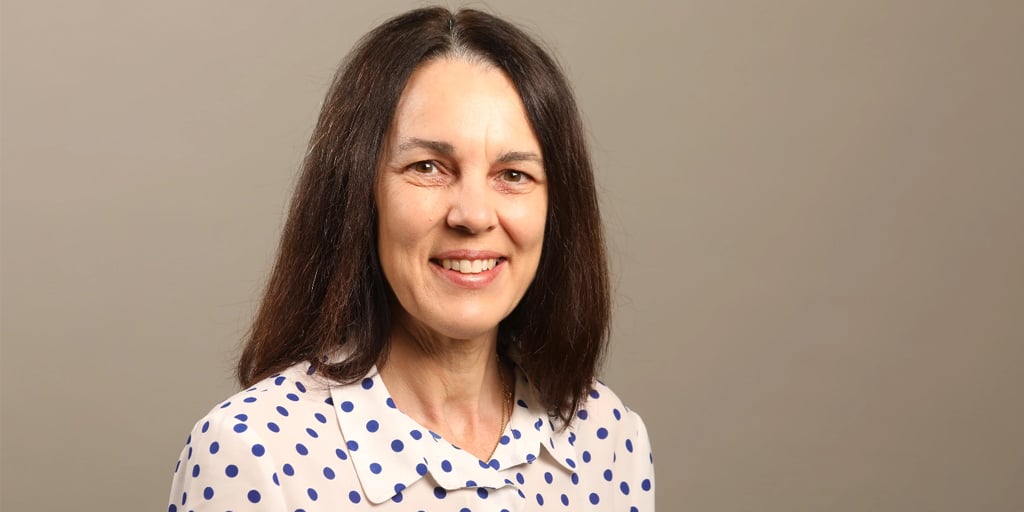
Dr Josie McLaren, Senior Lecturer and Head of Accounting and Finance Subject Group
What does it mean to be a woman in the area you work in?
When I joined the Department of Accounting and Finance at Newcastle University in the 1990s, I was only the third woman academic out of a staff of 11. Today I lead the Accounting and Finance subject group at Newcastle University Business School, where 50% of the 42 academics are women.
What privileges or challenges do you stereotypically face?
Whilst I feel very lucky to work in a supportive environment, I do believe that a woman academic has to work extra hard at times, in order to prove herself. I haven’t yet tried using a male pseudonym but I may be tempted to give it a go one day!
What advice would you give to young women going into your industry?
I’d like to inspire women to become academics and succeed in their roles. A few years ago I completed the University’s Women’s Coaching and Mentoring Programme as a mentor and it was fantastic to work both with great women leaders from different schools and to put that learning into practice.
What advice would you give to young women going into your industry?
Be confident, positive and put yourself forward. Believe in your own abilities!
Which women inspire you?
Jacinda Ardern (New Zealand’s Prime Minister) - she has demonstrated real strength in leadership whilst dealing with a variety of challenges. On top of that she became a mother whilst in office and she is still under 40 years old!
How do you choose to challenge inequality?
In the workplace I ensure that I work collaboratively with my colleagues, treating everybody with dignity and respect, ensuring that all voices are heard.
I encourage female students to engage with the wider research community
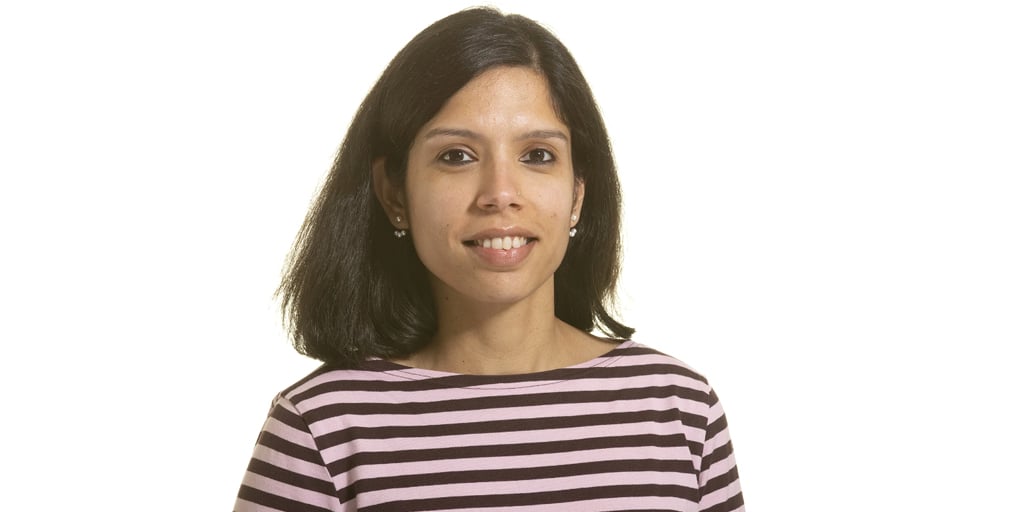
Dr Smriti Sharma, Lecturer in Economics
What does it mean to be a woman in the area you work in?
There is a higher representation of women in my area of specialisation of development economics as compared to some other sub-fields in economics, and this provides opportunities to interact with brilliant female economists at both junior and senior levels.
What privileges or challenges do you stereotypically face?
As an Indian and a female in economics, my experiences so far have been positive. However, as a woman doing co-authored work with male economists, I believe there is a greater need to justify my academic contribution to others. This phenomenon has also been documented by academic research showing that women often get less credit for co-authored work than men do (for the same piece of work).
What role would you like to play in relation to women's rights in your area?
Economics, like many other disciplines, faces a leaky pipeline with respect to progression of women as the share of women in the field decreases from PhD to the professorial level. As a PhD supervisor, I encourage female students to engage with the wider research community through conferences and seminars, and to consider careers in academia as we do need more diversity of people and ideas in the profession.
What advice would you give to young women going into your industry?
Getting an academic job right after a PhD is both exciting and daunting. Think carefully about time/effort management as well as how to negotiate on tasks that offer low promotability. Studies show that women are more likely than men to be asked to volunteer for service that does not always offer tenure/promotion avenues. Find allies and mentors – this can be both senior women and men – to help you navigate this process early on. Sign up for networking and mentoring events and don’t be afraid to promote your work and accomplishments.
Which women inspire you?
My mother, Dr. Hema Sharma. Growing up in India where a lot of mothers do not work, seeing her achieve professional success (as a medical doctor) alongside managing family and personal life was, and is, truly inspirational.
Meet more of our inspirational women working in STEM roles here at Newcastle University.

